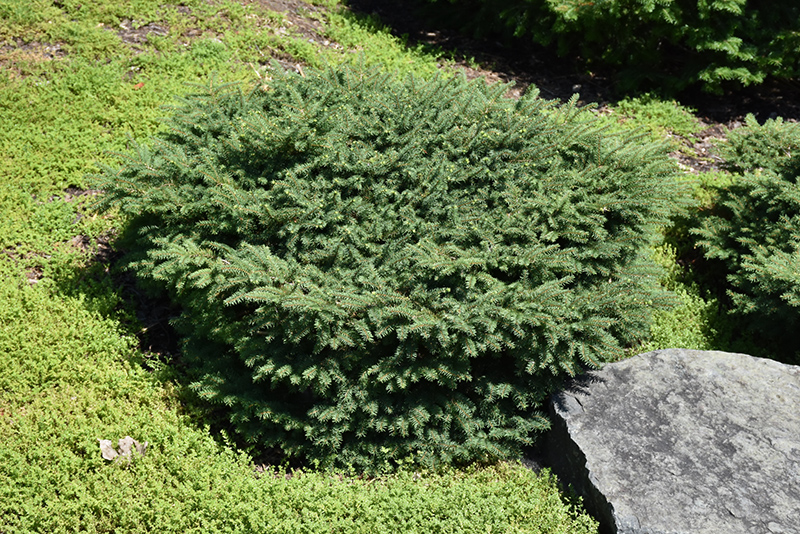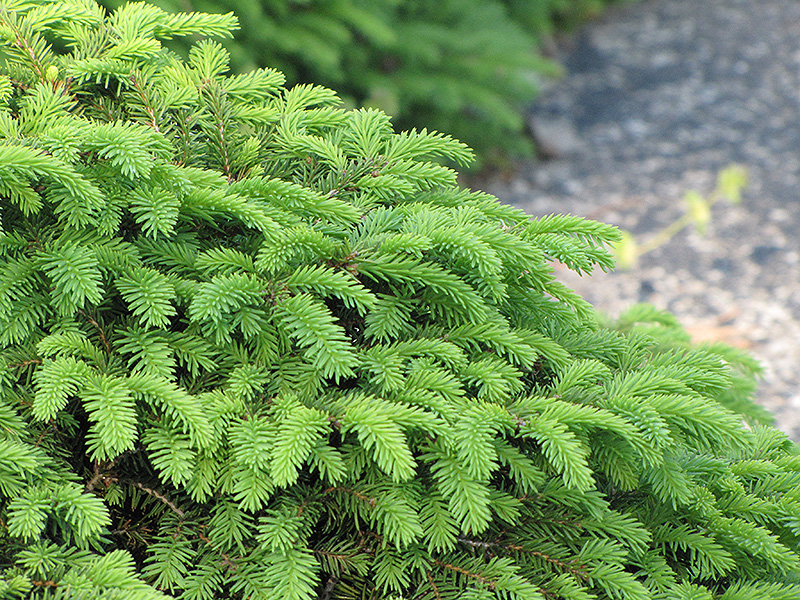4 feet
5 feet


3a
Norwegian Spruce
Birds Nest Spruce is a dwarf conifer which is primarily valued in the landscape or garden for its ornamental globe-shaped form. It has rich green evergreen foliage which emerges lime green in spring. The needles remain green throughout the winter.
Birds Nest Spruce is a dense multi-stemmed evergreen shrub with a more or less rounded form. Its relatively fine texture sets it apart from other landscape plants with less refined foliage.
This is a relatively low maintenance shrub. When pruning is necessary, it is recommended to only trim back the new growth of the current season, other than to remove any dieback. Deer don't particularly care for this plant and will usually leave it alone in favor of tastier treats. It has no significant negative characteristics.
Birds Nest Spruce is recommended for the following landscape applications;
- Mass Planting
- General Garden Use
Birds Nest Spruce will grow to be about 4 feet tall at maturity, with a spread of 5 feet. It tends to fill out right to the ground and therefore doesn't necessarily require facer plants in front. It grows at a slow rate, and under ideal conditions can be expected to live for 50 years or more.
This shrub does best in full sun to partial shade. It does best in average to evenly moist conditions, but will not tolerate standing water. It is not particular as to soil type or pH, and is able to handle environmental salt. It is highly tolerant of urban pollution and will even thrive in inner city environments. This is a selected variety of a species not originally from North America.

